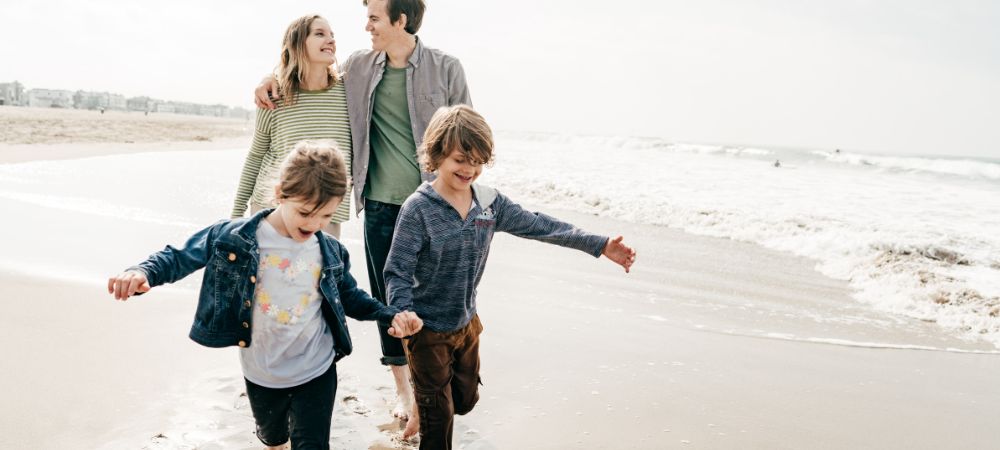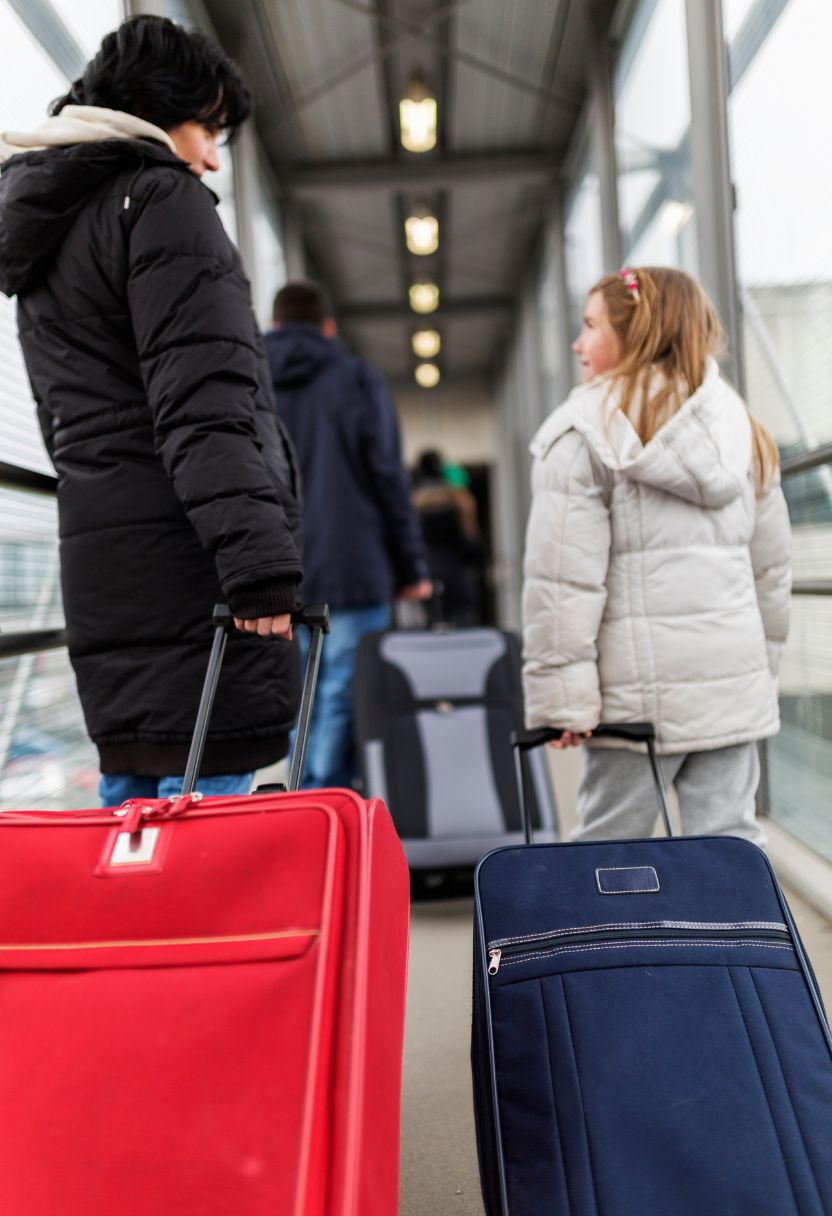

When it comes to traveling, safety should be at the top of your list. One of the most crucial steps is to research your destination thoroughly. It may sound like a chore, but trust me, it's not something you want to skip. Neglecting this step could lead to some unexpected, and possibly unpleasant, surprises.
First off, don't just rely on one source for information. Official tourism websites are great and all, but they often paint a rosy picture. Instead, diversify where you're getting your info from-check out travel blogs, forums like Reddit or TripAdvisor, and even news articles about recent events in the area. It's amazing how much you'll learn by doing a bit of digging.
You also shouldn't ignore local customs and laws. These might seem trivial when you're planning your trip from the comfort of home, but they can make or break your experience once you're there. added information offered click it. For instance, certain gestures that are perfectly okay where you live might be seen as rude or even offensive elsewhere. And hey, nobody wants to end up in trouble with local authorities because they didn't know jaywalking was illegal!
Another thing people often overlook is medical facilities and health advisories. No one plans on getting sick or injured while they're having fun abroad-but it happens! Gain access to additional information visit that. Find out what kind of healthcare services are available and if there's any specific health advice for travelers heading to that region. Oh-and don't forget to check whether you need any vaccinations before you go.
Transportation is another biggie when it comes to safety tips. Not all countries have the same standards as yours when it comes to public transportation or road safety. Research what types of transport are considered safe; sometimes taxis are a better bet than buses or vice versa.
And let's not forget about accommodation safety! You'd be surprised how many people book places without checking reviews first-big mistake! Look into what previous guests have said about security measures at hotels or vacation rentals.
Lastly (but definitely not least), make sure someone back home knows your itinerary-not just where you're staying but also any day trips or activities you've planned. It's always good for someone else to know where you're supposed to be just in case things don't go according to plan.
So there you have it-a few pointers on why it's so important not just skim over researching your destination thoroughly before setting off on your adventure. After all, being well-informed isn't just smart; it's essential for keeping yourself safe while enjoying everything your destination has to offer!
Packing an Emergency Kit: Essential Safety Tips
Hey there! So, let's talk about something most people don't really think about until it's too late-packing an emergency kit. I know, it sounds kinda boring and maybe even a little bit paranoid, but trust me, it's not as bad as you might think. Plus, having one could make a huge difference in a pinch.
First off, let me just say that you don't need to go overboard with this. You're not preparing for the apocalypse here! A basic emergency kit should contain some essential items to help you get through at least 72 hours of whatever crisis might come your way. No one's expecting you to pack your whole life into a backpack.
Okay, so what do you actually need? Well, water is numero uno on the list. You can't survive without it! Aim for at least one gallon per person per day. And don't forget food-non-perishable stuff like canned goods or energy bars work great. Oh man, and don't forget a manual can opener if you're packing cans; otherwise, you'll be staring at those beans forever!
Next up is first aid supplies. Bandaids, antiseptic wipes, pain relievers-you get the idea. If you've got any prescription meds you rely on daily, toss those in too (but keep track of expiration dates). It wouldn't hurt to have some personal hygiene items either; toothbrushes and toothpaste can make all the difference when you're feeling gross.
Communication tools are also super important. A battery-powered or hand-crank radio will help you stay informed if the power goes out. And batteries-oh gosh-you'll need lots of them for flashlights and other gadgets. Speaking of flashlights, LED ones are usually more reliable than traditional ones.
Don't overlook clothing and blankets! Depending on where you live and what time of year it is, appropriate attire can be crucial for staying warm or cool enough to handle the situation comfortably.
Documents are another thing folks often forget about but shouldn't! Copies of important papers like passports, IDs, insurance policies-all these things matter big time if there's any kind of evacuation scenario.
One last tip: don't neglect comfort items entirely. A deck of cards or a book can go a long way in keeping spirits up when tensions are high.
So there ya have it-a quick rundown on packing an emergency kit that isn't as daunting as it seems! Remember that it's better to have it and not need it than need it and not have it. Take care out there!
The Maldives, understood for its stunning overwater bungalows, is composed of 99% water and just 1% land, making it a special location for water enthusiasts.
Australia's Great Obstacle Reef is the largest living structure in the world and can also be seen from celestial spaces, holding over 2,900 specific coral reefs and 900 islands. Bhutan determines its progression with Gross National Joy rather than GDP, focusing on the health of its people and the environment, which significantly influences its tourist plans.
The globe's busiest flight terminal by guest traffic, Hartsfield-Jackson Atlanta International Airport terminal, saw greater than 110 million passengers in 2019, serving as a significant center for travel in the United States.
The Trans-Siberian Railway is the longest railway on the planet, extending over 9,289 kilometers from Moscow to Vladivostok and crossing 8 time zones, using one of one of the most immersive means to check out Russia.
When it comes to figuring out the best age to start traveling with kids, there's no one-size-fits-all answer.. Experts and parents alike have a lot of opinions on this matter, and they don't always agree. Many experts suggest that waiting until your child is at least three years old might be a good idea.

Posted by on 2024-07-13
Planning a family vacation can be both exhilarating and stressful, especially when you're trying to keep costs down.. But don’t worry, there are budget-friendly travel tips for each season that won’t leave your wallet feeling empty.

Posted by on 2024-07-13
When it comes to family travel, the secret to keeping things stress-free isn't just in picking the right destination or packing efficiently.. It's really all about budgeting wisely to avoid financial stress.

Posted by on 2024-07-13
When it comes to keeping important documents secure and copies handy, it's not just about being organized; it's about ensuring your peace of mind. We all know life's unpredictable - you never quite know when you'll need that birth certificate or those medical records. So, why not be prepared?
First off, don't think for a second that your home is the safest place for all your critical papers. Sure, it might feel convenient to stash them in a drawer or a shoebox under the bed, but what if there's a fire? Or worse yet, someone breaks in? It's really not worth the risk. Instead, consider investing in a good quality safe – one that's fireproof and waterproof. These safes are designed to protect against both natural disasters and theft.
But hey, let's not put all our eggs in one basket! Having copies of essential documents is equally important. It's funny how we often overlook this simple step. Make photocopies or even digital scans of everything - passports, insurance policies, wills...you name it! And no, don't just leave those copies lying around either. Store them somewhere separate from the originals; maybe give a set to a trusted family member or friend.
Oh! And speaking of digital scans – let's talk tech for a moment. In today's world, having digital backups isn't optional; it's necessary! Use cloud storage solutions like Google Drive or Dropbox to store encrypted versions of your most vital documents. The beauty here is you can access these files anytime from anywhere with an internet connection.
Now some folks worry about the security of online storage – and rightfully so! But there's no need to fret too much as long as you're smart about it. Don't use weak passwords (seriously!), enable two-factor authentication where possible, and keep your software up-to-date.
Let's address another common pitfall: procrastination. It's easy to say “I'll do it tomorrow,” but let's be honest – tomorrow rarely comes when we're talking paperwork! Set aside some time this weekend (yes THIS weekend) to gather all your important documents together and start making those copies.
In conclusion (and oh boy does this sound cliché), better safe than sorry couldn't ring truer when dealing with important docs. While nobody likes thinking about worst-case scenarios – fires, floods or thefts – preparing now can save you loads of trouble down the line.
So go ahead: secure those originals in a sturdy safe; make those crucial copies; embrace the wonders of modern technology with digital backups; and please don't procrastinate any longer!
After all isn't peace-of-mind worth that little bit effort?


Establishing a Family Meeting Point: A Crucial Safety Tip
Oh, how often do we think about safety tips and then just shrug them off! But hey, one thing you shouldn't ignore is establishing a family meeting point. Trust me, it's more important than you might think. We live in unpredictable times, right? Emergencies can happen anytime, anywhere. And when they do, panic follows closely behind. That's why having a designated meeting spot for your family can make all the difference.
First things first, let's talk location. You don't want to pick some random place that's difficult to get to or remember. Choose somewhere that's easy for everyone to find and access. Maybe it's the big oak tree at the end of your street or the local community center. The key is to make sure every family member knows where it is without doubt.
Now, don't be under the impression that once you've chosen this magical spot, you're all set forever! Conditions change; maybe construction starts near your chosen point or maybe it's not as safe as you thought initially. It's crucial to re-evaluate and adjust if necessary.
And please don't assume everyone gets it on their first try! Practice makes perfect, folks! Have mock drills occasionally so everyone knows exactly what to do in case of an emergency. You wouldn't want anyone wandering aimlessly looking for others during a crisis now, would ya?
Also-and this one's super important-make sure your kids understand why this meeting point matters so much. They're not gonna take it seriously if they think it's just another boring rule imposed by mom and dad. So sit down with them and explain its importance calmly but firmly.
By now you're probably thinking this sounds like too much work or something that'll never come in handy. But oh boy, you'd be surprised how many families have benefitted from having such plans in place during unforeseen events like natural disasters or even small household emergencies.
In conclusion (ah yes, we've reached that part!), establishing a family meeting point isn't just another task on your endless list of things-to-do; it's an essential step towards ensuring everyone's safety during emergencies. Don't wait until it's too late-get started today!
So there you have it-a simple yet effective way to keep your loved ones safe when life throws curveballs our way! Isn't peace of mind worth just a bit of extra effort?
In today's fast-paced world, staying connected with communication devices is not just a convenience-it's a crucial safety tip. Let's face it: we all depend on our smartphones, tablets, and other gadgets to keep us in the loop. Whether we're traveling, working late, or simply out for a jog, these devices can be lifelines in times of need.
First off, you should never underestimate the power of having a charged phone. It's kinda like your personal security blanket. Imagine you're stuck on a desolate road with no way to call for help because your phone's dead! Oh no! To avoid such scenarios, always carry a portable charger-the small investment could make all the difference when it really matters.
Communication devices also allow us to share our locations with loved ones or emergency services. It ain't rocket science; most modern phones come equipped with GPS tracking features that can be lifesavers. If you don't want people knowing where you are at all times (and who does?), just enable location sharing only when necessary. This ensures you're reachable without compromising too much on privacy.
Moreover, it's essential to familiarize yourself with emergency numbers and apps suited for crisis situations. Don't think you won't ever need them-it's better to have them and not need them than need them and not have them. For instance, some apps provide quick access to emergency contacts or local authorities with just one tap.
But hey, let's talk about moderation too! While it's great to stay connected, over-reliance on these devices isn't advisable either-ironically enough! Think about it: if you're always glued to your screen while walking down the street or driving (gasp!), you're setting yourself up for accidents waiting to happen.
In summary, staying connected through communication devices offers unparalleled safety benefits but shouldn't lead us into complacency or dangerous habits. Keep your gadgets charged and ready but use 'em wisely. After all, technology is here to assist us-not replace basic common sense!
So there you have it-some practical tips wrapped up in simple advice: stay alert and stay safe by making the most of those handy-dandy communication devices without letting 'em rule your life!

Child safety is a priority for every parent, caregiver, and community member. One important aspect of ensuring children's safety is using child identification methods. These techniques can help quickly locate and identify a child if they go missing. While no one wants to imagine such an unfortunate event, it's crucial to be prepared.
Firstly, having recent photographs of your child is essential. You don't need professional photos; just keep some clear pictures on your phone or printed out. It's not necessary to update them every week, but every few months wouldn't hurt. These images can be immediately shared with authorities if needed.
Secondly, teach children their full name, address, and parents' phone numbers as soon as they're old enough to remember it. Even though kids might not always get it right the first time, practice makes perfect! And you'll be surprised how quickly they learn when you turn it into a game.
In addition to this basic information, consider using ID bracelets or tags for young children when going into crowded places like amusement parks or fairs. Some parents think these are overkill but better safe than sorry! Make sure the tags aren't too obvious so strangers can't easily read them.
Another effective method is keeping a record of your child's fingerprints. Unlike other forms of identification that can change over time (like hair color), fingerprints remain consistent throughout life. You don't have to make a big deal outta this; many police stations offer fingerprinting services for kids during community events.
Moreover, there are technological solutions available now that weren't around when we were kids. GPS trackers in watches or shoes provide real-time location info about where your child is at any given moment. Although some folks argue that these gadgets invade privacy or make us paranoid – hey – peace of mind matters more!
It's also important to educate children about "safe strangers" like police officers or store employees who they can approach if they gets separated from you in public places. Tell'em what uniforms look like so they know who to trust and who not to.
Lastly-though it seems kinda obvious-never leave children unattended in public spaces even for short periods like running back to grab something from the car. It's just not worth the risk!
In conclusion, while nobody likes thinking about worst-case scenarios involving their children's safety, having certain identification methods in place can significantly ease the process of finding them should anything happen. From simple steps like updating photos and teaching personal info to utilizing modern tech solutions – there are multiple ways we can ensure our little ones are protected without becoming overly paranoid or repetitive in our efforts.
When it comes to safety, one thing we can't ignore is being cautious with food and water. Oh boy, you might think it's not a big deal, but trust me, it really is! You wouldn't believe the number of people who get sick just because they didn't pay attention to what they're eating or drinking.
First off, let's talk about food. You know that saying "better safe than sorry"? It applies perfectly here. Always make sure your food is properly cooked. Raw or undercooked foods can be a breeding ground for bacteria. And hey, don't forget to wash your hands before handling any food-like seriously! It's surprising how many folks skip this simple step and end up regretting it later.
Then there's the issue of storing food correctly. Don't leave perishable items out at room temperature for too long; they could spoil faster than you'd expect. Use airtight containers to keep everything fresh and free from contaminants. Also, watch those expiration dates-it's not just some random number!
Now moving on to water-something we all take for granted until there's an issue. Drinking contaminated water can lead to all sorts of health problems that you definitely don't want to deal with. If you're in an area where the tap water isn't safe, stick to bottled water or use a reliable filter system.
When traveling, this becomes even more crucial especially if you're visiting places where water quality is questionable. Avoid ice in drinks unless you're sure it was made from safe water. And oh my goodness, be wary of street food vendors; their hygiene standards might not always meet your expectations.
Another thing worth mentioning is cross-contamination in the kitchen-it's such an easy mistake but has serious consequences! Always separate raw meat from other foods and clean surfaces thoroughly after preparing them.
In conclusion (yes I'm wrapping up!), being cautious with food and water isn't something we should take lightly. A few simple precautions can save you a ton of trouble down the road. So next time you're about to eat or drink something, pause for a moment and ask yourself if it's safe-you won't regret it!
So remember folks: Clean your hands, cook your food well, store it right and always check your water source! Stay healthy and stay cautious!
Educating children on safety protocols ain't just a good idea, it's essential. Kids are curious by nature, and they're always exploring their surroundings. But sometimes, that curiosity can lead them into dangerous situations if they don't know what to watch out for. So, let's talk about some practical ways we can teach our little ones to stay safe without making it sound like we're lecturing them.
First off, let's not underestimate the power of conversation. Yeah, you heard me right – just talking with your kids can make a big difference! You don't need to sit them down for an hour-long discussion; instead, weave safety tips into everyday chit-chat. For instance, when you're crossing the street together, explain why it's important to look both ways and hold hands. It's simple stuff like this that sticks in their minds.
Now, I ain't saying you should scare them half to death with horror stories or anything like that. Fear-based tactics don't work well on kids-they're more likely to freak out than actually learn something useful. Instead of saying "Don't talk to strangers!" in a panicky voice, try explaining calmly why it's important only to speak with people they know or trust.
Role-playing is another fantastic way to get the message across without sounding too preachy. Turn it into a game! Let's say you're teaching about fire safety: Pretend there's a fire drill at home and practice how you'd all get out quickly and safely. Kids love pretend play anyway, so why not make it educational?
And oh boy, let's not forget about online safety-it's a whole new ballgame these days! With so much screen time happening now (thanks pandemic), teaching children how to navigate the digital world safely is crucial. Explain things like why they shouldn't share personal information online or accept friend requests from strangers.
You can't cover everything in one go either-kids have short attention spans after all! Make sure you're revisiting these topics regularly but also mix up your approach so they don't tune you out entirely.
Lastly-and this one's super important-be a role model yourself! Children mimic adults' behavior more than we realize (or admit). If they see us following safety rules consistently-from wearing seatbelts every single time we hop in the car to using crosswalks correctly-they're much likelier to do the same themselves.
So there ya have it folks-a few pointers on how we can educate our kiddos on vital safety protocols without turning into boring old nags! It's all about communication really; keep it relaxed yet informative and always lead by example.